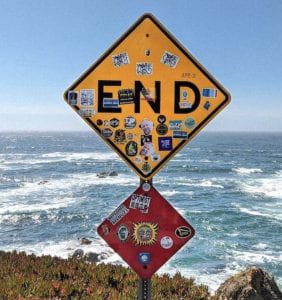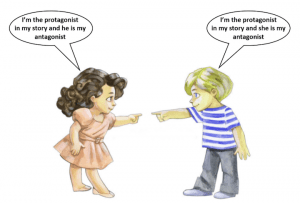 There’s one thing every writer needs to master, and that is how to leave a lasting impression on readers—how to end their story. Should it be unresolved or ambiguous; unexpected or dramatic? As writers, we have plenty of options. So, you might ask, what worked for me in my latest novel? More on this to come, suffice to say that I changed the ending a few times, more or less in keeping with my editing and having more time to review it. In the end (pun intended), I changed the ending to tie up a loose end near the beginning. I could tell you more, but that would be giving the plot away. OK, here’s a glimpse of the beginning of the final chapter:
There’s one thing every writer needs to master, and that is how to leave a lasting impression on readers—how to end their story. Should it be unresolved or ambiguous; unexpected or dramatic? As writers, we have plenty of options. So, you might ask, what worked for me in my latest novel? More on this to come, suffice to say that I changed the ending a few times, more or less in keeping with my editing and having more time to review it. In the end (pun intended), I changed the ending to tie up a loose end near the beginning. I could tell you more, but that would be giving the plot away. OK, here’s a glimpse of the beginning of the final chapter:
Chapter 86
“It’s a perfect evening,” I exclaim, easing the genoa. A puff of wind fills the sail and it swings out to leeward, clipping the waves. As we heel, the view of Dubrovnik widens. The walls are bathed in orange and the sea is dotted with boats making their way home. Our bow rises with the breeze, slicing through the swells. Beside me, Rian is a seasoned sailor behind the wheel—happy, tanned and in control, and Chloé sits opposite with her hand in the foam. Like her hair, the moment is golden.
“Does this yacht have a name?” She asks Rian.
He pulls the tiller to bear away into the harbor and replies, “Serendip.”
I smile. It’s the old Persian name for Sri Lanka. My mind races back to the tea estate in Kandy and I see Ravi again, serving us high tea on the manicured lawn in colonial fashion while the sun fades behind Adam’s Peak at the end of a day just like this. My memory is on fire as the sun punches into the ocean.
“Can you tie the bow line please, Chris?” Rian asks as we drop sail and motor past St. John Fort.
“Roger that.” I leap ashore, securing fore and aft ropes, and follow Rian along the boardwalk. He winds his way between a crowd, their faces washed in red as they enjoy the sunset. Girls pose for their lovers and lonely hearts watch their fishing lines bob above the tide. The fish aren’t biting, but tourists are as they flock to a choice of restaurants.

 Here’s the best advice that helps my writing: I need to review it regularly: “Be myself and be authentic. Don’t try to put on a voice that isn’t my own. Keep my characters genuine and real. Readers will pick up if I’m lying, and they will put my book down. Keep my writing simple and keep it honest.”
Here’s the best advice that helps my writing: I need to review it regularly: “Be myself and be authentic. Don’t try to put on a voice that isn’t my own. Keep my characters genuine and real. Readers will pick up if I’m lying, and they will put my book down. Keep my writing simple and keep it honest.” Why did this tip seem such a good one? It’s simple. Your writing should include YOU—your experiences, your heart and soul; the beat of your own drum. When I was editing my second novel, this became so important that it caused me to rewrite my characters to include the leadership conflict I had experienced in my own career. And, as a result, the book gained more power and a sense of poignancy that made it real. At least, I hope it did! So, take Franz Kafka’s words of wisdom to heart and write from your heart.
Why did this tip seem such a good one? It’s simple. Your writing should include YOU—your experiences, your heart and soul; the beat of your own drum. When I was editing my second novel, this became so important that it caused me to rewrite my characters to include the leadership conflict I had experienced in my own career. And, as a result, the book gained more power and a sense of poignancy that made it real. At least, I hope it did! So, take Franz Kafka’s words of wisdom to heart and write from your heart. Definitions (from
Definitions (from